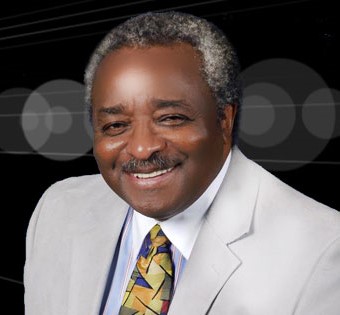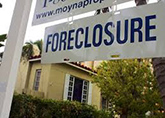FORECLOSURE – KNOWING YOUR RIGHTS MATTERS – PART II
This is the second of a three-part series provided to the public as a service, because of the importance and magnitude of the matter, by Living with the Law.
WHAT IS FORECLOSURE ANYWAY AND WHAT CAN I DO ABOUT IT?
You may have heard the old saying or even repeated it yourself when asked, do you own your home. “Me and the Bank,” is a common refrain. This series of articles and the workshops we will sponsor on April 1st and 2nd 2016 are designed to help you understand how to fight back against a widespread scheme that ultimately benefits only the people who allegedly wanted to help you achieve the “American dream”.
Despite federal and local laws that require certain disclosures (most of which are buried in the fine print of your mortgage documents) and “truth-in-lending” requirements (which we will discuss in the third article, focusing on what you can do to defend against foreclosure), most mortgage brokers, banks and other mortgage lenders rely on a consumer’s ignorance and eagerness to own a home. It’s the same when they try to take your home; they also rely on your ignorance of your rights. And when you don’t know your rights, you essentially don’t have any. When you fail to exercise your rights, you effectively surrender them.
In our last article, we familiarized you with some basic terms and concepts to help you understand the confusing and voluminous papers and documents you have to deal with.
This article focuses on explaining the foreclosure process and offers some tips to avoid making your situation more complicated and emotionally nerve-wracking.
FORECLOSURE IS THE PROCESS OF TAKING POSSESSION OF YOUR HOME AS A RESULT OF NOT PAYING THE AMOUNT TO WHICH YOU ALLEGEDLY AGREED ON THE NOTE YOU SIGNED WHEN YOU BOUGHT YOUR HOUSE
The good news is that foreclosure is a process that can sometimes take months. Time may be your greatest friend. You have time to plan, negotiate, and evaluate your options. Most people realize that they may lose their home as soon as the first mortgage payment is missed. Once falling behind on the Note, you will have a few months before the lender starts the foreclosure process. A lender may be willing to work with you if you missed one or two payments. However, if for reasons, beyond your control you cannot pay and you miss four or five payments, the Pre-Foreclosure stage begins and ends when the lender files a Notice of Default.
HOW FORECLOSURE WORKS IN THE DISTRICT OF COLUMBIA.
In DC, foreclosure can take place out of court under the Power of Sale clause contained in the Deed of Trust (non-judicial foreclosure) or through the D.C. Superior Court when the lender files a civil lawsuit (judicial foreclosure) to exercise a power of sale and establish the term of the foreclosure sale. Until last year, when the Court created a new Foreclosure Court, the overwhelming majority of foreclosures in D.C. took place through the non-judicial process. Since then, many more are taking place in D.C. Superior Court.
Judicial Foreclosure
In April of 2014, after studying foreclosures in the District of Columbia through a Working Group, the Court created the new Court. The Working Group reasoned that although judicial foreclosure cases are exempt from the Saving D.C. Homes from Foreclosure Act (providing specific mediation and related requirements for out-of-court foreclosures), the D.C. Superior Court should use its equitable powers to provide early court-based mediation in all foreclosure cases filed with the court. The aim of early mediation in judicial foreclosures is to provide a significant and practical benefit to homeowners, allowing them to talk with lenders about the possibility of loan modifications or other alternatives to foreclosure. While the jury is still out and court-sponsored mediation in civil cases is not new, scheduling mediation to occur early in a case even before it is placed on a regular civil track is a significant change thought to result in substantial benefits and resource savings for homeowners, lenders, and the court. A homeowner can request mediation without filing an answer, usually due within 20 days after having been served with a summons and complaint. Thus, in a judicial foreclosure, the D.C. Superior Court offers its own mediation program that borrowers can use when a foreclosure suit is filed. The judicial foreclosure program has become quite popular with lenders. On any given day as many as 100 cases are docketed and moved through a courtroom with standing room only.
More about the judicial and non-judicial mediation programs as options in Article III.
Non-Judicial Foreclosure
The following applies to owner-occupied dwellings of one to four units.
You have the right to:
- Notice of Default. Generally, a lender will send this to you within 30-90 days once you stop paying the mortgage. This notice must be sent to each borrower at his/her last known address and the amount of money that must be paid to cure the default and reinstate the loan must be stated. The notice must also include information about the mediation program administered by the D.C. Department of Insurance, Securities and Banking (D.C.DISB) and provide the name and contact information of at least one non-profit housing counseling service available to you. The notice must also include an application for lender programs (mandated by current federal law and offered by the lender) to avoid foreclosure. In addition, the lender must record with the Recorder of Deeds of the District of Columbia, a copy of the Notice of Default.To participate in mediation supervised by the designee of the D.C. DISB, a homeowner is required to return the Mediation Election form included with the Notice of Default within 30 days of the date the Notice was mailed. Mediation must take place within 90 days and conclude within one hundred eighty (180) days of the date of mailing of the Notice, unless the parties mutually consent to an extension of up to 30 days.A lender cannot exercise a power of sale until a final mediation certificate is issued by the Mediation Administrator.
- Notice of Intention to Foreclose. This is the notice of the lender’s intention to sell the property that must be sent to the borrower(s) and include information about the sale. Generally, this notice may be issued around 120 days (4-6 months) of non-payment. A copy of the notice must also be sent to the Mayor at least 30 days before the sale. The 30 days begins to run once the Mayor receives the notice. This notice can only be sent after the Mediation Administrator issues a mediation certificate. A certificate must be issued regardless of whether you elected to participate or not in mediation before the lender can send you this notice.
- Notice of Sale. After the thirty days for the Notice of Intention to Foreclose, the trustee under the Deed of Trust must publish a Notice of Sale in a newspaper of general circulation. The terms of sale and notice requirement will be set out in the Deed of Trust. This process can take two to 18 months.
- Right to Reinstate Before Foreclosure. Under DC law, a borrower has up to five days before the date of the sale to pay all amounts due to cure the default, reinstate the loan and stop the foreclosure.
- Right to Redeem the Loan After Foreclosure. Once a property has been sold in the District of Columbia either in a non-judicial or judicial procedure, a borrower cannot get it back.
- Eviction or Notice to Vacate. The purchaser of a foreclosed property must provide you with a notice of eviction issued by the court. The length of the notice depends on whether you and your family lived in the home as homeowners or tenants. As a homeowner, following the foreclosure sale, you will be contacted by the new title-holder of the property asking you to leave the property. If the property was bought back by the same lender, they may give you some money to leave the property clean and in good condition. If you don’t leave, after 30 or 45 days they can start an eviction process at court. The Judge will send you an eviction notice including the date when you must leave. If you don’t leave that day, the Washington DC sheriff will go to the property to take you out and change the locks. If they lock the doors with your belongings inside, you cannot take them out anymore.
Living with the Law published a detailed Article on your rights after foreclosure. That Article can be found in the Member’s Section of our Site.
DOs and DONTs:
Do:
- Contact your mortgage servicer as soon as you have trouble making payments. You may be able to negotiate a new payment schedule.
- Contact an attorney and/or a HUD-approved housing counselor for assistance if you receive letters threatening foreclosure. The D.C. Department of Housing and Community Development (DHCD) maintains a list of approved HUD Housing Counselors.
- Return, no later than 30 days, the mediation election form to the mediation administrator and the lender in the envelopes enclosed with the notice and addressed to them.
- Avoid advertisers and letters you may receive from for-profit companies even if they look “official” offering to stop your foreclosure for a fee.
- Be wary of offers to “lease back” your home or buy your home in which you are not formally released from liability for your mortgage by the lender seeking to foreclose.
- Keep a log of all contacts with your lender.
- Gather, organize and put in a folder all of your mortgage documents, payments or cancelled checks, notices, correspondence and other communications with the lender or servicer.
Don’t:
- Sign anything you don’t understand or with blank lines or spaces, as information could be added later without your knowledge and consent.
- Do not make a down payment up front on your delinquent payments, and ask for written information from your bank before you make any financial decisions.
- Make your mortgage payments to anyone other than your mortgage servicer.
- Neglect or ignore any notices or correspondence from your lender or servicer or the court.
D.C. HUD-Certified Foreclosure Counselors:
Housing Counseling Services
202-667-7006 • www.housingetc.org
Latino Economic Development Corporation
202-588-5102 • www.ledcmetro.org
Central American Resource Center
202-328-9799 • www.carecendc.org
University Legal Services (multiple locations)
202-547-4747 • www.uls-dc.org
Lydia’s House
202-373-1050 • www.lydiashousendc.org
Marshall Heights Community Development Organization, Inc.
202-396-1200 • www.mhcdo.org
National Community Reinvestment Coalition
202-628-8866 • http://ncrc.org
Disclaimer: This article is for educational purposes only. Nothing on this site can be construed as legal advice. Always consult an attorney.






